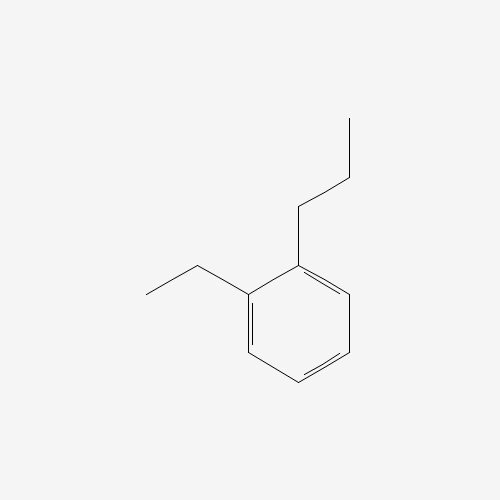
Types and Functions of Chemical Admixtures in Construction
In the realm of construction, chemical admixtures play a significant role in enhancing the performance and durability of concrete. These specialized substances can significantly alter their properties and improve workability, strength, and longevity when added to the concrete mix. By understanding the diverse applications of chemical admixtures, construction professionals can optimize their concrete formulations for superior results.
What are Chemical Admixtures?
Chemical admixtures are substances added to concrete during mixing to modify its properties. They are typically introduced in small quantities by concrete admixture manufacturers and can significantly enhance the performance and workability of concrete. Chemical admixtures are classified into various types based on their specific functions and effects on the concrete mixture.
Types of Chemical Admixtures
∙ Plasticizers
Plasticizers, also known as water-reducing agents, are admixtures that improve the workability of concrete without sacrificing its strength. They disperse cement particles, reduce water content, and enhance flowability. This leads to increased slump and easier concrete placement, making it suitable for various construction applications.
∙ Superplasticizers
Superplasticizers are high-range water-reducing agents that have an even more significant effect on concrete workability. They can reduce water content by a substantial amount while maintaining the required slump. Superplasticizers enable the production of high-strength, flowable concrete, allowing for easier pumping and placement.
∙ Retarders
Retarders slow down the setting time of concrete, extending its workability period. They are beneficial in hot weather conditions or when transporting concrete over long distances. Retarders allow for proper concrete placement and finishing without the risk of premature setting.
∙ Accelerators
Accelerators, as the name suggests, expedite concrete’s setting and early strength development. They are commonly used in cold weather conditions or when a quick turnaround is required. Accelerators allow for faster construction progress by reducing the initial setting time of concrete.
∙ Air-Entraining Agents
Air-entraining agents are admixtures that introduce tiny air bubbles into the concrete mixture. These bubbles create small voids in the hardened concrete, improving its durability and resistance to freeze-thaw cycles. Air-entraining agents enhance the workability of concrete, making it easier to handle and finish.
∙ Waterproofing Agents
Waterproofing agents are chemical admixtures that enhance the impermeability of concrete. They reduce water absorption and penetration, protecting structures from moisture-related damage. Waterproofing agents are particularly useful in basements, swimming pools, and other areas prone to water exposure.
∙ Corrosion Inhibitors
Corrosion inhibitors are admixtures used to protect reinforcing steel within concrete from corrosion. They create a protective layer around the steel, preventing the penetration of aggressive substances such as chloride ions. Corrosion inhibitors enhance the durability and longevity of concrete structures, especially in harsh environments.
These are just a few examples of the wide range of chemical admixtures available in construction by any concrete admixture manufacturer. Each type offers specific benefits and can be tailored to meet various projects’ unique and varied requirements.
Functions of Chemical Admixtures in Construction
∙ Improved Workability
Chemical admixtures such as plasticizers and superplasticizers enhance the workability of concrete. They reduce the water required while maintaining the desired consistency and slump. This improved workability makes the concrete easier to handle, place, and finish, increasing productivity and efficiency in construction projects.
∙ Increased Strength and Durability
Certain chemical admixtures, such as air-entraining agents and corrosion inhibitors, enhance the strength and durability of concrete structures. Air-entraining agents create microscopic air bubbles that improve resistance to freeze-thaw cycles, reducing the potential for cracking and damage. Corrosion inhibitors protect reinforcing steel from corrosion, ensuring the longevity and structural integrity of the concrete.
∙ Extended Setting Time
Retarders are chemical admixtures that slow down the setting time of concrete. This is particularly useful in large construction projects where concrete must remain workable for an extended period. By delaying the setting process, retarders allow sufficient time for proper placement and finishing, reducing the risk of premature setting and related issues.
∙ Accelerated Setting Time
In contrast to retarders, accelerators expedite concrete’s setting and early strength development. They are beneficial in cold weather conditions or when quick construction progress is required. Accelerators enable faster curing and allow earlier removal of formwork or scaffolding, reducing project timelines.
∙ Improved Water Resistance
Waterproofing agents are chemical admixtures that enhance the water resistance of concrete. They reduce the material’s permeability, making it less susceptible to water absorption and damage. Waterproofing agents are particularly valuable in areas with high moisture exposure, such as basements, swimming pools, and water treatment facilities.
∙ Enhanced Pumpability
Certain chemical admixtures, such as plasticizers and superplasticizers, provided by concrete admixture manufacturers improve the permeability of concrete. By reducing the viscosity and friction within the mixture, these admixtures allow for easier pumping over long distances and through narrow or complex structures. Enhanced permeability increases the efficiency and effectiveness of concrete placement, especially in large-scale projects.
Chemical admixtures in construction are indispensable tools that allow for the optimization of concrete properties and performance. These functions of chemical admixtures highlight their critical role in enhancing concrete properties and performance, ensuring the successful execution of construction projects. Construction professionals can achieve improved workability, strength, durability, and overall project quality by selecting the appropriate chemical admixtures and incorporating them into concrete mixtures.
Construction professionals can achieve superior workability, strength, durability, and overall project success by incorporating the appropriate chemical admixtures into concrete formulations. If you want a reliable chemical admixtures solution, learn more about vinplast 245 by Vinati Organics.
Vinati Organics
Vinplast 245, by Vinati Organics, one of the best chemical manufacturers, suppliers and exporters in India, is an acrylic superplasticizer used as an additive in concrete admixture formulations. With the approach towards construction evolving, chemical admixtures have become crucial in enhancing the performance and durability of concrete. These specialized substances can significantly alter their properties and improve workability, strength, and longevity when added to the concrete mix. While Vinplast 245 by Vinati Organics is not a concrete admixture, it is an additive in concrete admixture formulations. It contributes to the overall function and effectiveness of the admixture by enhancing its plasticizing properties. Vinplast 245 aids in dispersing cement particles, reducing water content, and improving flowability. This leads to increased slump and easier concrete placement, making it suitable for various construction applications. By incorporating Vinplast 245 into concrete admixtures, construction professionals can optimize their formulations for superior workability, strength, and overall project quality.





